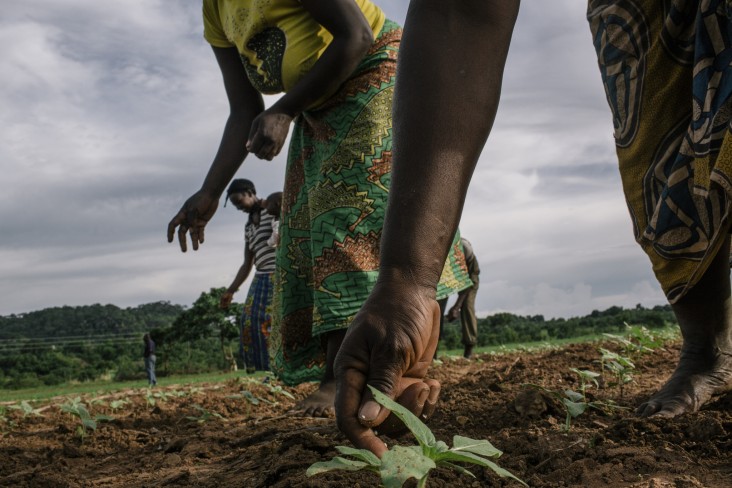
In Zambia, through the Feed the Future initiative, USAID tackles rural poverty and malnutrition with activities that address policy issues, promote access to markets, and assist smallholder farmers to diversify and increase agricultural production and incomes. Zambia also has a tremendous wealth of natural resources which, however, face increasing threats, including deforestation, illegal and unsustainable wildlife trafficking, and the effects of extreme weather conditions.
USAID encourages sustainable natural resource management to conserve Zambia’s forests and wildlife, and supports measures to combat wildlife trafficking. Through the Power Africa initiative, USAID seeks to increase generation of, and access to, clean energy sources, especially in remote rural and off-grid spaces.
Improving Natural Resource Management
Through the Community Forests Program, USAID supports the Zambian Government in the development of a national Reducing Emissions from Deforestation and Degradation (REDD+) strategy. The strategy outlines how the country will act to preserve its woodlands and reduce the high levels of deforestation. A Government-to-Government activity in Eastern Province helps protect wildlife through increased park ranger patrols of protected areas, improved management of forest boundaries, and greater involvement of village headmen and traditional leaders.
Increasing Agricultural Productivity
USAID/Zambia programs work with small-scale farmers in Eastern Province and peri-urban Lusaka to increase the efficiency, productivity, and diversification of maize, legume, and other horticulture production. These activities: PROFIT+ (Production, Finance and Improved Technology Plus), Mawa, and the USAID Better Life Alliance promote improved technologies, including micro-irrigation, post-harvest storage, and better-quality seed and fertilizer. USAID programs also promote conservation agriculture, including minimum tillage and crop rotation, and more nutritious and drought-tolerant food crops, such as Vitamin A-rich maize and orange-flesh sweet potatoes.
Expanding Markets and Trade
USAID programs in Zambia foster an enabling environment for agricultural development based on a robust private sector. USAID supports activities through institutions that build capacity to conduct research and adopt policies that promote agricultural trade and enable the best use of public resources. USAID also works to bolster the entire agricultural value chain by building the technical and business skills of farmers, cooperatives, processors, and community based agro-dealers, and strengthening the relationships among actors in the value chain.
Strengthening the Resilience of Vulnerable Households
The Feed the Future (FTF) Mawa program targets vulnerable households with an integrated approach to building assets and reducing risk. Through USAID, FTF programs in Zambia help subsistence farmers and households produce enough to meet their own needs and also remain with a surplus for market sale. Resilience programs focus on the whole family as well as community networks, to ensure that health, nutrition, food security, and economic growth are integrated into all activities. Special attention is given to involving women living in extreme poverty, expanding their opportunities to become producers, service providers, and entrepreneurs.








Comment
Make a general inquiry or suggest an improvement.